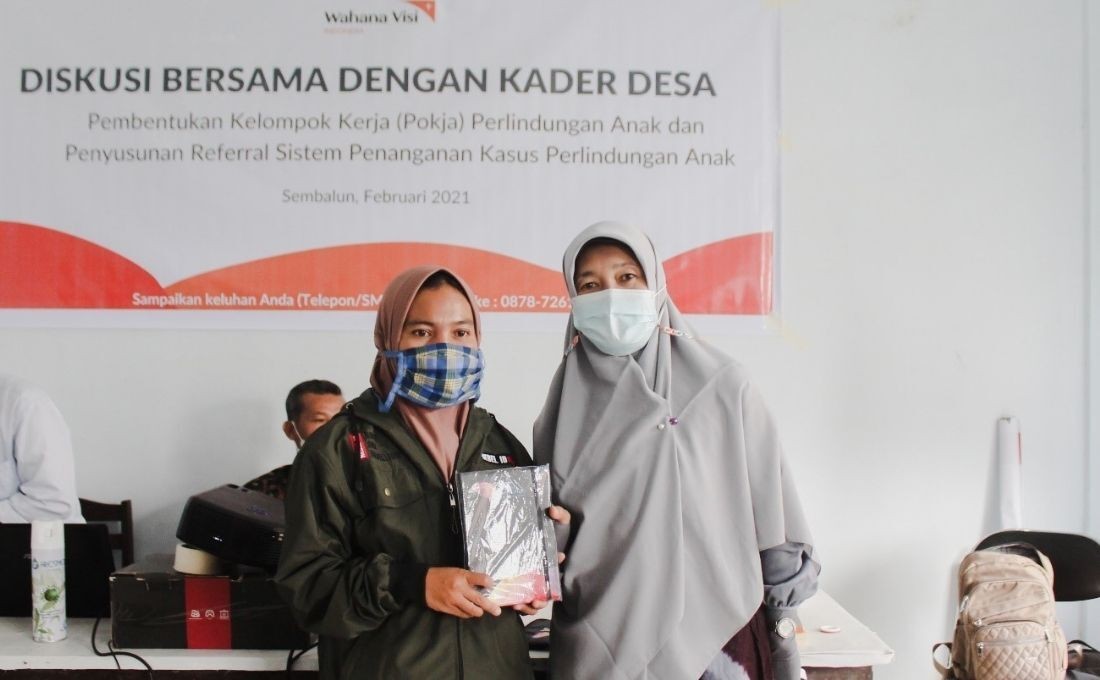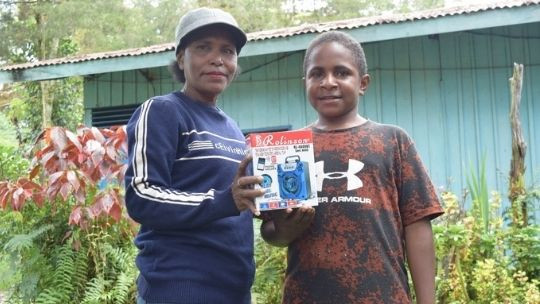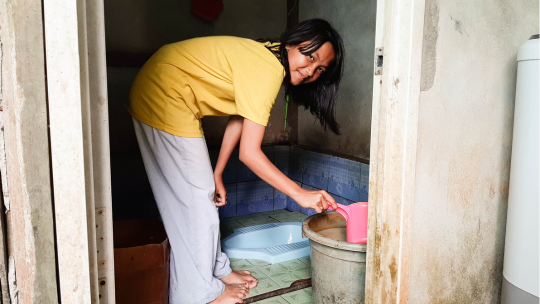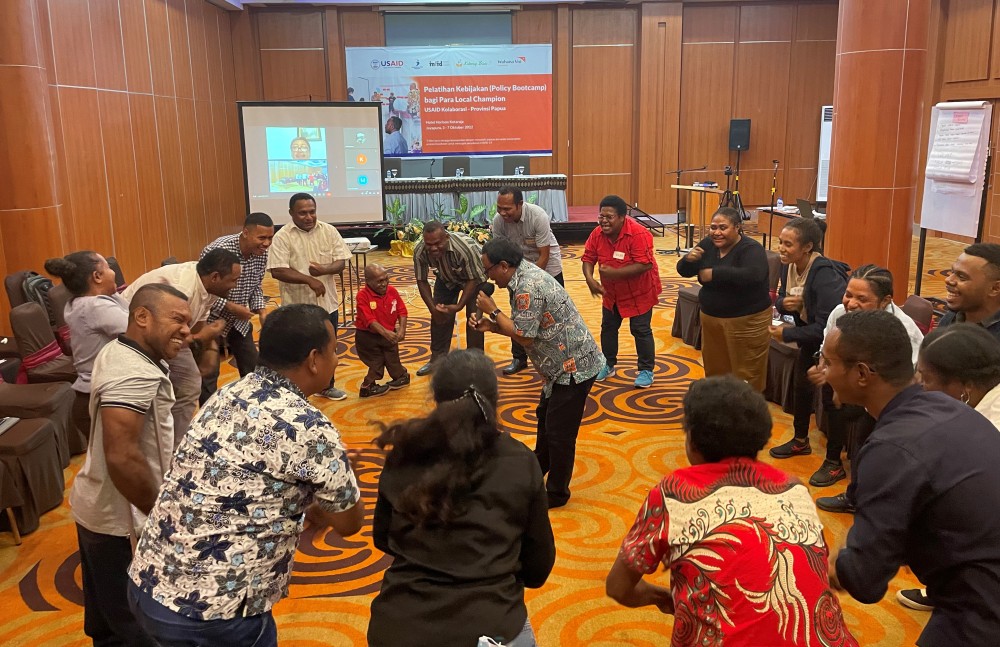Together Stop Child Marriage

Even though society is currently amid technological advancements and global culture, the tradition of child marriage is still maintained in several villages in Indonesia. One of them is in Sembalun District, East Lombok Regency. This fact is often a challenge in combating the negative impacts of child marriage and has also become the focus of Wahana Visi Indonesia (WVI) as a child-focused humanitarian organization.
Through the Lenting project supported by World Vision Korea, WVI provides assistance and training related to the referral system for child protection to the community in East Lombok Regency. This right is carried out to reduce or even eliminate the number of child marriages in the district.
Nur Aini (32), a housewife, is one of the beneficiaries of the project. After attending the training, Nur got a new experience in getting to know children.
“I tried to participate in mentoring and training, which turned out to be a lot of things that I just learned and were very positive because I also have children at home. Now I am starting to know many things,” said Nur.
Nur admitted that she did not know much about child marriage in her village.
“If there is a case that occurs in the village, it is only handled by the hamlet head and if there is an underage marriage, they are immediately married without any handling from the village. And currently, violence (children) is still not heard, maybe there is but it is still closed because they (parents) still consider it a disgrace,” he said.
According to Nur, after receiving WVI assistance for 6 months, the people of East Lombok are increasingly active in carrying out various activities related to children's interests, such as socializing children's rights to children, mitigating climate change, and conducting children's campaigns in direct collaboration with government partners. For maximum results, a Pokja (Working Group) was formed to deal with the issue of child marriage in East Lombok.
“After the assistance, the cases of children are decreasing, the villages are handling them well, we are involved and coordinate with each other with the parties involved if there are cases in the village. Yesterday there was a case of children marrying underage, now they are not married, instead, a meeting was held with the school, parents and village authorities to resolve the problem. Didn't immediately decide to let them get married and now it's over. I am very grateful,” explained the woman who is also a cadre in her village.
Not only did the knowledge reach the community from the training provided, but Nuraini, who has children, began to implement changes in the family.
“I try to change my parenting style to my children, usually if my child is wrong, I immediately get angry. Sometimes angry with children for no reason. Now if there is a problem, avoid it, don't let the child see it. If you are angry with a child, your emotions are somewhat restrained. That's what we learned from mentoring with WVI," she concluded.
Today, the community continues to carry out campaigns or socialization of child protection in every community, both during activities at the posyandu, and so on.



